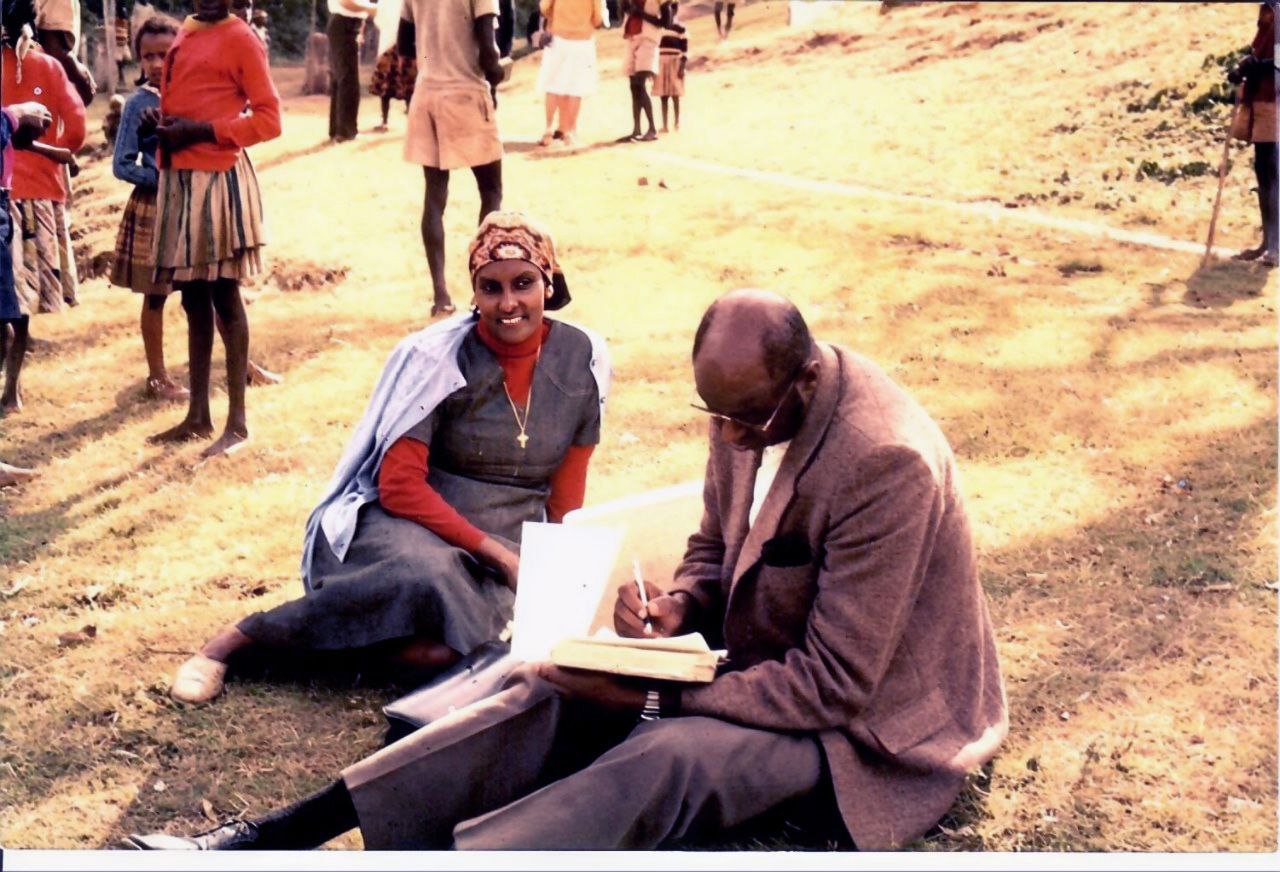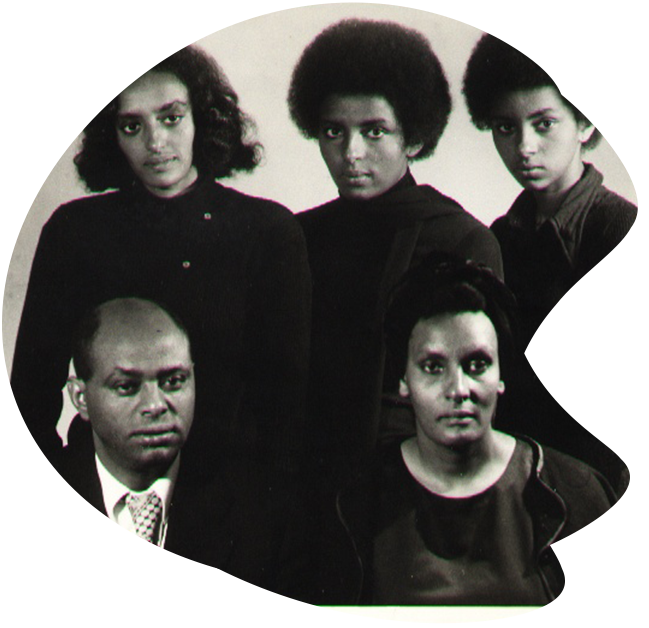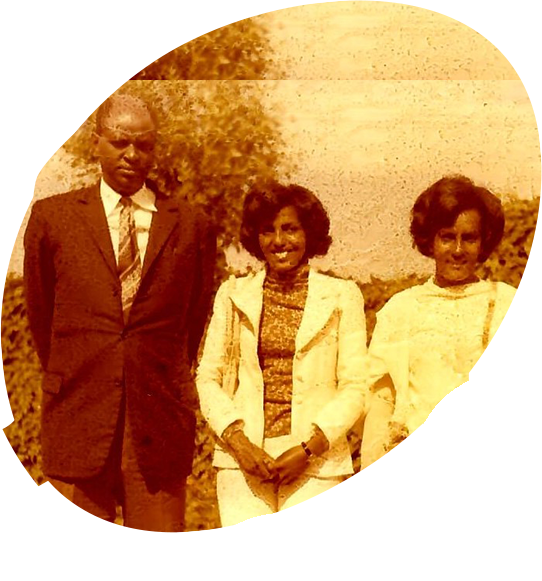

Reverend Gudina Tumsa and his wife Tsehay Tolessa are among the most remarkable evangelical Christian couples who ever lived, though their story remains little known even among Ethiopian and global evangelical circles. Often called ‘the Ethiopian Bonhoeffer’, Rev Gudina reckoned with one of the most brutal military regimes in Ethiopian history that demanded abject loyalty from its citizens. A towering figure, an impassioned preacher, deep thinker, and visionary theologian, he stood for his convictions and refused to denounce his faith and paid the ultimate price: with his life!
His wife, Tsehay Tolessa also faced a cruel persecution in the hands of the military regime during her ten years imprisonment in the notorious prison known as ‘Meakelewi. Their individual stories, and their united mission, are deeply moving. Even after Gudina’s death, Tsehay continued the work; sharing her testimony worldwide, reuniting her family, and launching key ministries after the discovery of Gudina’s remains. She founded a prison ministry, planted a church, and established both Gudina Tumsa Foundation and Gudina Tumsa Legacy – what is now the Gudina and Tsehay Legacy (GTL) Office. As author Sarak Hinlicky Wilson observes in her book, The Life, Works, and Witness of Tsehay Tolessa and Gudina Tumsa, the Ethiopian Bonhoeffer, “Aside from the story of prominent Lutherans Marthin Luther and Katharina von Bora, she knows no other such compelling story of a Christian marriage as full partnership in both household and gospel”.
...Despite living through one of the most turbulent periods in Ethiopian history and enduring severe persecution, Rev. Gudina Tumsa and Tsehay Tolessa’s faith never wavered. Together, they led thousands to Christ, demonstrating profound compassion and humility amid unimaginable hardship and cruelty. Rev. Gudina boldly challenged the status quo, questioned prevailing Western notions of development, and embraced holistic service as a driving force for transformation within Ethiopia and across Africa. Their faithful service, personal integrity, and visionary leadership made them not only formidable in the face of adversity but also brought extraordinary success to their ministry.
These unique qualities not only set them apart but continue to inspire both the Ethiopian church and the global Christian community—a world grappling with moral and leadership crises. As Dr. Øyvind Eide observed, “Gudina’s murder brought to an end the possibility of creative and visionary theological reflection in the church, which was so much needed in Ethiopia at the time. It was a blow to African theology as well as to the worldwide church. His theology, which grew out of African soil, remains of great interest.” Echoing this sentiment, Rev. Girma Arfaso described their profound communal impact: “Gudina Tumsa is our St. Paul. He and his wife, Tsehay Tolessa, showed our people Jesus Christ—they shared our hunger, our sufferings.”


My parents, Gudina and Tsehay, were born and raised in Ethiopia. They were united in marriage and devoted their lives to serving God. Their union was undoubtedly a providential appointment destined to bring the gospel to the unreached regions of Ethiopia and beyond. Following Gudina's abduction and Tsehay's imprisonment, the mere mention of the name Gudina Tumsa became a topic fraught with danger. Church leaders refrained from inquiring about his whereabouts, fearing potential repercussions for the church's survival.
...Friends were apprehensive for their own safety, while family members remained silent. Gudina's stature, both spiritual and physical (standing at 6ft 7in), prompted his friend Paul Hoffman to question how such a figure could disappear unnoticed. His name and memory seemed to dissipate into obscurity. His prior arrests had already caused significant disruption to the Ethiopian Military government. The regime was compelled to not release him from incarceration, given the threat posed by humanitarian organizations and churches, which could potentially impact the substantial relief and developmental aid on which Ethiopia heavily relied.
Tsehay was cognizant of the trials that lay ahead for her family but struggled to admit it. However, as later revealed through testimony, the vow they had taken at the altar in the presence of the Holy Spirit and the congregation—to stand together in sickness and health, joy and sorrow, blessings and suffering until death—anchored her throughout. Gudina's missionary journey and the tragic fate he met culminated on the night of his abduction while he and Tsehay were returning from a church service. He complied quietly and obediently with his captors, who led him to the Old Palace's chamber of death, where he endured brutal torture and was ultimately killed. Gudina's torment came to an end, but for Tsehay, it marked the commencement of a decade-long traverse through the grim valleys of suffering and imprisonment. Locked in a dark dungeon for thirteen months, she suffered a broken arm and endured beatings that left her feet mangled.
The absence of medical care for her wounds resulted in a severe infection that persisted due to subsequent beatings. The degree of brutality she endured was unparalleled; her wounds were inflicted anew before healing could take place. According to a fellow inmate's testimony, Tsehay never ceased her mission work, despite her injuries and the harsh prison environment. The unceasing preaching of Christ was her imperative. As recounted by a prison-mate, Tsehay, after being tortured and returned to her cell, would drag herself to the wall, striving to stand. There, she would begin to sing hymns, praising God amid the bloodshed. This image, though perhaps bewildering to her fellow prisoners, was her form of mission work. In every circumstance, the gospel of Jesus Christ had to be shared. Beyond the agony of her prison existence, the uncertainty surrounding her husband's whereabouts and the duration of their suffering became unbearably distressing. She clung to the hope that Gudina might be alive in one of Ethiopia's countless prisons.
This hope restrained her from uttering politically sensitive words that could endanger her husband's life. She wished for an end to her misery, finding her suffering devoid of meaning. She faced no formal charges, never appearing in court; even criminals underwent legal proceedings before imprisonment. Her tormentors, lower-ranking military personnel often inebriated, unleashed unexplained anger and insults upon her. While hanging on the bars of her cell, Tsehay would call upon the name of Jesus, leading the men to mockingly question why Jesus did not intervene. A year later, she was transferred to the main prison, where she would spend nine more years. Her unwavering determination and love for the Lord created new avenues for ministry within the prison. An epidemic swept through the overcrowded and unsanitary prison, claiming hundreds of lives daily without medical intervention.
Tsehay gained permission to treat both male and female inmates. Assisted by missionaries from Europe, she provided food and medicine, establishing friendships through her regular visits to patients. In a country where Marxist ideology prevailed and acknowledging God's existence was a criminal offense, she managed to smuggle in countless Bibles. In the dead of night, after curfew, she held clandestine church meetings, where believers and non-believers gathered to hear Bible passages, sing hymns, and pray. She became a beacon of hope. Organizing inmates into small trading groups, she facilitated the production of handicrafts, which were sold by her missionary contacts.
These endeavors generated income, enabling many to support themselves and their families. Her approach mirrored her husband's holistic ministry. Throughout her decade-long imprisonment, her faith remained unshaken. Even in the direst circumstances, she affirmed the righteousness and holiness of God. Every handicraft she produced in prison, whether wood carvings, tablecloths, bags, or decorated pens, bore the inscription of Psalm 46: "God is our refuge and strength, an ever-present help in trouble. Therefore we will not fear, though the earth give way and the mountains fall into the heart of the sea, though its waters roar and foam and the mountains quake with their surging.
The Lord Almighty is with us; the God of Jacob is our fortress." Tsehay persisted in preaching the gospel, providing sustenance and clothing to prisoners. She partnered with her children to establish the Gudina Tumsa Foundation (GTF) to continue Gudina's vision. Gudina's life ended in 1979, and Tsehay passed away in 2014, but their vision lives on through GTF and the Biftu Bole Mekane Yesus Church. They continue to spread the gospel of Jesus Christ to the marginalized in Ethiopia's remotest villages, offering water to the thirsty, food to the hungry, and education to the underprivileged. Periodically, all Ethiopian churches convene for theological seminars, reflecting on the legacy of Gudina Tumsa, the man who sacrificed his life for the Church of Jesus Christ.


A compilation of information the study of Gudina Tumsa

History of Gudina Gumsa The Importance of the Man, Reverend and Martyr Gudina Tumsa
his section was inspired by the writing of Gudina Tumsa from his compiled writings—Witness and Discipleship. The section is meant to analyze Gudina’s thought pattern, make it contextual to the present day and use his deep insight to..
Learn more